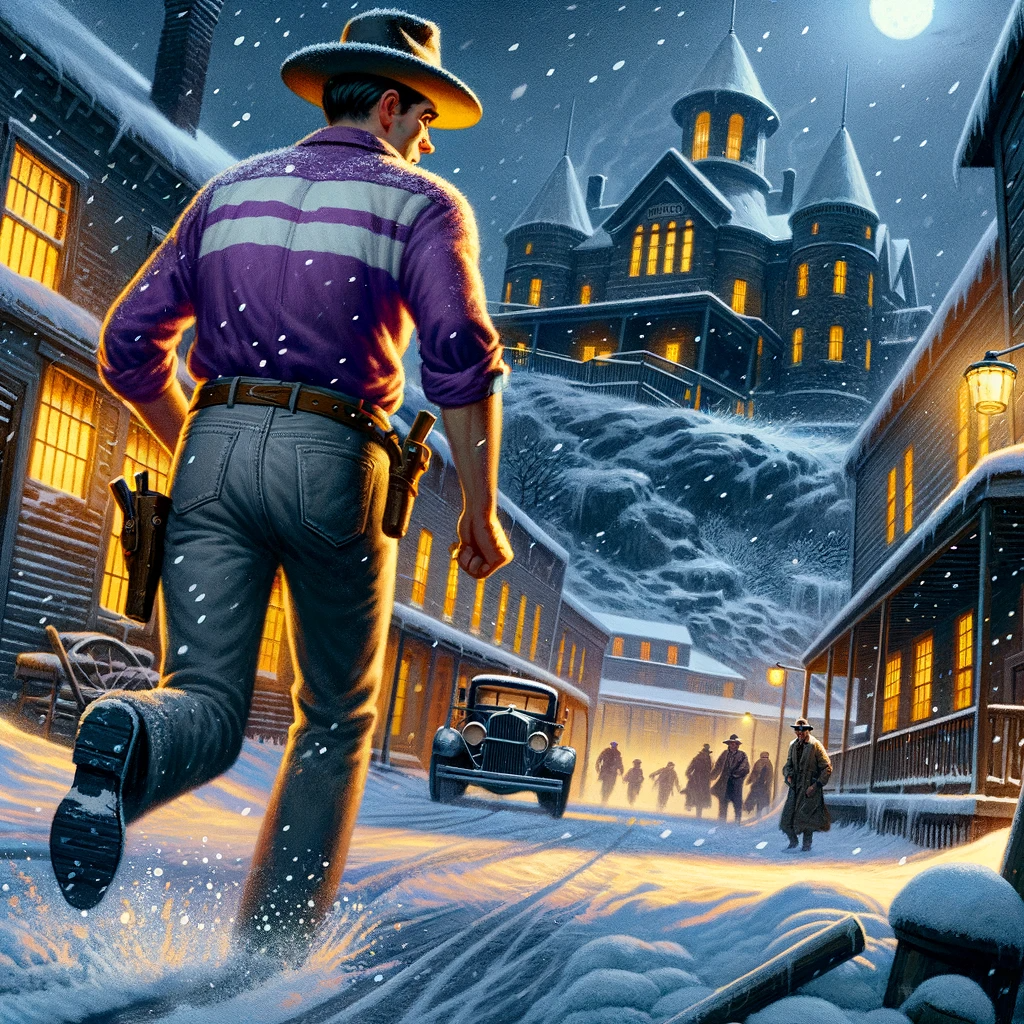In the heart of a frigid Kentucky winter, the quaint town of Somerset lay blanketed in snow, its serenity a stark contrast to the turmoil brewing within the walls of its state penitentiary. George Marlow, convicted of a crime he swore he didn’t commit, was counting his final hours on death row.
The day was drawing to a close when the guard, a burly man with a face hardened by years of thankless duty, entered his cell. “Time, Marlow,” he said, his voice a mix of indifference and hidden sympathy.
George looked up, his eyes a turbulent mix of fear and resolve. He’d always been a survivor, and now, faced with the ultimate finality, his instinct screamed for him to fight, to flee. But where? How? The walls of the penitentiary were as unyielding as fate.
As he was led down the bleak corridor, a sudden commotion erupted. A distant alarm, shouts, the chaos of a rare opportunity. In a split second, driven by sheer desperation, George acted. He seized the guard’s baton in a swift, surprising motion, striking him and sending him tumbling to the ground, unconscious but alive.
His heart pounding, George dashed through the maze of corridors, his every step a dance with danger. The prison, a fortress of despair, was alive with the sound of alarms and the shouts of guards. Yet, in the chaos, he found his path to a neglected service gate, its lock succumbing to the stolen keys with a reluctant click.
Freedom, cold and biting, embraced him as he stepped into the wintry night. Somerset, a town now haunted by his legacy, lay before him, its lights flickering like accusatory eyes. He needed a disguise, a new identity. His plan was as desperate as it was simple: blend in, disappear.
Under the cover of darkness, he neared a small clothing store, its window a gateway to his new guise. With a heavy heart, he shattered the glass with a found brick, grabbing a motley assortment of clothing – a purple shirt with white stripes, gray jeans, and a yellow hat, an ensemble as mismatched as his feelings.
Dressed in his new attire, George found a moment’s rest behind an ancient oak tree, its branches a temporary shield from the prying eyes of dawn. The morning paper, flapping in the cold breeze, carried his infamy on its front page, a grim reminder of his unwanted legacy.
With nowhere to go, he set his sights on Tennessee, a new land, a possible new life. Along his journey, he encountered the unexpected – a woman by the river, her brown hair flowing, her green dress a splash of color in the bleak landscape. But she vanished as quickly as she appeared, a figment of his strained mind or perhaps a symbol of lost innocence.
Finally, George reached Nashville, a city bustling with life, a stark contrast to the solitary journey he’d undertaken. Here, amidst the crowds, he realized the true weight of his freedom. It wasn’t in the running, the hiding, or the disguising. It was in confronting the truth, facing his past, and seeking redemption in the eyes of a world that had already judged him.
And so, George Marlow, once a prisoner of fate, now walked the streets of Nashville, a free man burdened with the chains of his past, searching for a future where the truth could finally set him free.
